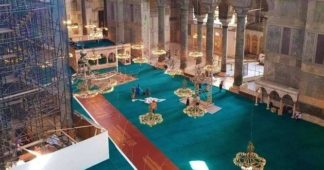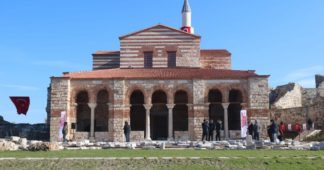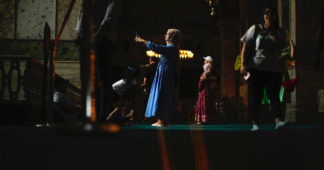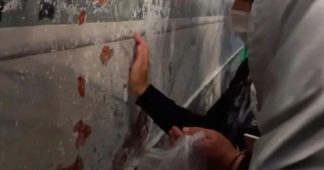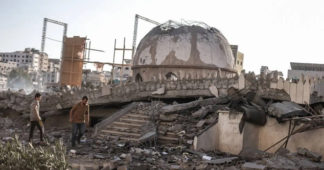The Chora Museum, a former Greek Orthodox religious building dating back to the 4th century, was reopened to worshippers in Istanbul as a mosque, sparking an angry reaction from Athens.
By Hamdi Firat Buyuk and Eleni Stamatoukou
May 7, 2024
“The Turkish authorities’ decision to begin the operation of the Monastery of Chora as a Muslim mosque constitutes a provocation for the international community as it distorts and affects its character as a UNESCO World Heritage Site belonging to humanity,” the Greek Foreign Ministry said in a statement.
Built in the 4th century as the Chora Church, the building was converted into a mosque around 1511 following the conquest of Constantinople by the Ottoman Empire, becoming a symbol of the empire’s might. In 1945, it was transformed into a museum by the Turkish government.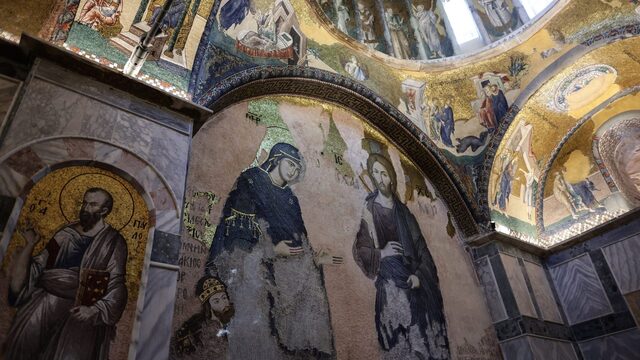 Turkish President Recep Tayyip Erdogan then issued a decree in August 2020 to convert it into a mosque again. Under the same decree, Erdogan also ordered the opening of the Hagia Sophia Museum as a mosque.
Turkish President Recep Tayyip Erdogan then issued a decree in August 2020 to convert it into a mosque again. Under the same decree, Erdogan also ordered the opening of the Hagia Sophia Museum as a mosque.
A special Islamic ceremony was held to mark the reopening on Sunday, which was hailed by President Erdogan.
After 79 years, “this mosque is reopening and greeting believers in Istanbul” like the Hagia Sophia Grand Mosque, Erdogan said in a video message at the ceremony.
Priceless Christian icons, frescoes and paintings on the walls of the mosque will be covered up during Islamic prayers, although the house of worship will remain open for visits from people of all faiths.
But the Greek Foreign Ministry expressed concern about the conservation of the heritage contained in the building.
“The maintenance of monuments’ universal character and compliance with international standards for the protection of religious and cultural heritage is a clear international obligation binding on all States,” the ministry said.
We remind our readers that publication of articles on our site does not mean that we agree with what is written. Our policy is to publish anything which we consider of interest, so as to assist our readers in forming their opinions. Sometimes we even publish articles with which we totally disagree, since we believe it is important for our readers to be informed on as wide a spectrum of views as possible.
